Bitcoin Ponzi scheme
description: a fraudulent investment operation using Bitcoin, where returns are paid to earlier investors using capital from newer investors
16 results
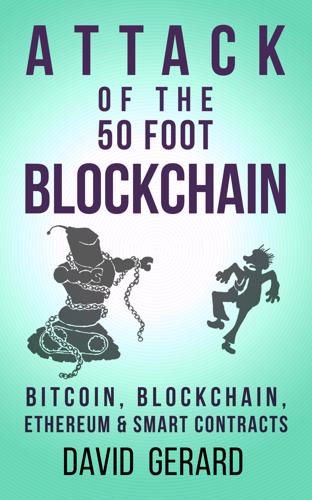
Attack of the 50 Foot Blockchain: Bitcoin, Blockchain, Ethereum & Smart Contracts
by
David Gerard
Published 23 Jul 2017
“Judge Awards $40.7 Million in SEC Case Over Bitcoin Ponzi Scheme”. Recode, 19 September 2014. [76] “Manhattan U.S. Attorney And FBI Assistant Director Announce Securities And Wire Fraud Charges Against Texas Man For Running Bitcoin Ponzi Scheme”. Department of Justice, U.S. Attorney’s Office, Southern District of New York (press release), 6 November 2014. [77] Nate Raymond. “Texan gets one-and-a-half years in prison for running bitcoin Ponzi scheme”. Reuters, 21 July 2016. [78] Justin O’Connell. “Lawyer Reveals Details About the Man Behind Bitcoin’s $4.5 Million Ponzi Scheme”. Motherboard, 18 December 2015
…
But in practice, Bitcoin was substantially mined early on – early adopters have most of the coins. The design was such that early users would get vastly better rewards than later users for the same effort. Cashing in these early coins involves pumping up the price and then selling to later adopters, particularly during the bubbles. Thus, Bitcoin was not a Ponzi or pyramid scheme, but a pump-and-dump. Anyone who bought in after the earliest days is functionally the sucker in the relationship. “Why should I spend money to make these guys rich?” is such a common objection that the Bitcoin Wiki answered it: “Early adopters are rewarded for taking the higher risk with their time and money.”
…
“[shame thread]The sorry and thank you Pirateat40 thread”. Bitcointalk.org Bitcoin Forum > Economy > Marketplace > Lending > Long-term offers, 17 August 2012. (archive) [68] Mageant. “Bitcoin Killer App: High Yield Investments”. Bitcointalk.org Bitcoin Forum > Bitcoin > Bitcoin Discussion, 22 July 2012. (archive) [69] Vitalik Buterin. “Ponzi schemes: The Danger of High Interest Savings Funds”. Bitcoin Magazine, 31 May 2012. (archive) [70] Adrianne Jeffries. “Suspected multi-million dollar Bitcoin pyramid scheme shuts down, investors revolt”. The Verge, 27 August 2012. [71] yochdog. “The pirate speaks”.
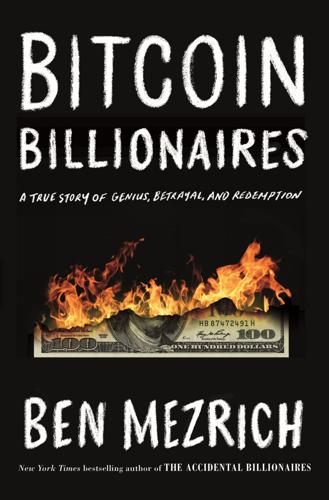
Bitcoin Billionaires: A True Story of Genius, Betrayal, and Redemption
by
Ben Mezrich
Published 20 May 2019
They’d also reached out by email to former professors at Harvard and Oxford, where they’d earned MBA degrees, to get more academic opinions on this new virtual currency. None of the professors they’d contacted—some of them among the most elite economics professors in the world—had ever heard of Bitcoin. When the twins had explained what they had learned so far, some responded in a knee-jerk way, labeling Bitcoin as some sort of scam or Ponzi scheme. But when Cameron pressed them on those notions, the professors couldn’t exactly say what the scam was, or why it was a Ponzi scheme. Settling their SUV just below the speed limit, Cameron hit the button to unmute the conversation. “The party is just getting started,” blurted a voice, words coming so fast they threatened to run right into each other.
…
‘People say it’s a Ponzi scheme, it’s a bubble. People really don’t want to take it seriously. At some point that narrative will shift to “virtual currencies are here to stay.” We’re in the early days.’ ” “Nice,” Tyler agreed. “The haters can take that and stuff it where it belongs.” Calling Bitcoin a Ponzi scheme, or equating it to the Dutch tulip bubble of the seventeenth century, were favorite criticisms of the virtual currency. They would never deny there were a lot of growing pains ahead: the Bitcoin market was volatile, still trying to recover from the crash caused by Mt. Gox going offline for twelve hours when it couldn’t handle the overwhelming volume of transactions.
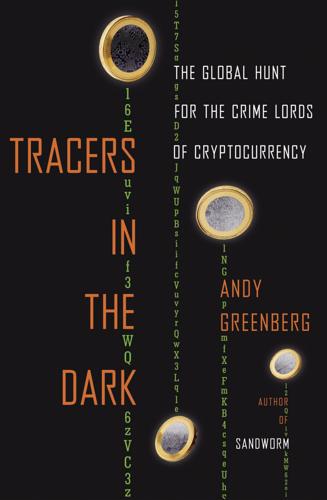
Tracers in the Dark: The Global Hunt for the Crime Lords of Cryptocurrency
by
Andy Greenberg
Published 15 Nov 2022
* * * · · · As Meiklejohn had trawled cryptocurrency forums for discussions of interesting addresses worth scrutinizing, one mysterious mountain of money in particular stood out: This single address had, over the course of 2012, accumulated 613,326 bitcoins—5 percent of all the coins in circulation. It represented around $7.5 million at the time, a figure nowhere near the billions it would represent today, but a heady sum nonetheless. Rumors among Bitcoin users suggested that the hoard was possibly a Silk Road wallet, or perhaps the result of an unrelated, notorious Bitcoin Ponzi scheme carried out by a user known as pirate@40. Meiklejohn couldn’t say which of the two rumors might be correct. But with her clustering techniques, she could now follow that giant sum of cryptocurrency. She saw that after conspicuously gathering at one address, the pile of money had been broken up in late 2012 and sent on forking paths around the blockchain.
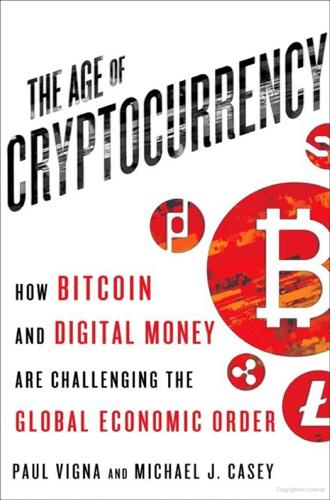
The Age of Cryptocurrency: How Bitcoin and Digital Money Are Challenging the Global Economic Order
by
Paul Vigna
and
Michael J. Casey
Published 27 Jan 2015
In late June 2013, reports emerged that the FBI had seized 11 bitcoins (then worth $800) from a drug dealer in what was seen as an initial “honeypot sting” on Silk Road. A month later, the Securities and Exchange Commission filed charges against Trendon Shavers, a Texan accused of running a bitcoin Ponzi scheme under the moniker pirateat40. That the Feds were now taking bitcoin seriously was an alarming yet exhilarating proposition for bitcoiners, who were divided between those who wanted its lawlessness to continue and those who believed its growth depended on the legitimacy of regulation and enforcement against criminality.
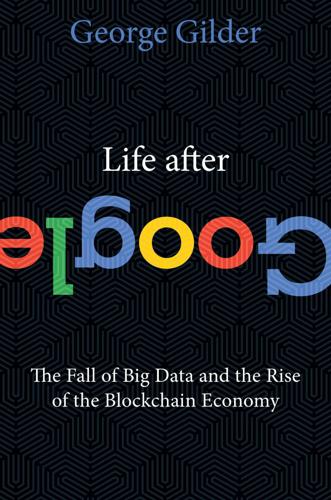
Life After Google: The Fall of Big Data and the Rise of the Blockchain Economy
by
George Gilder
Published 16 Jul 2018
“Who is holding the bag?” • • • Tuur Demeester’s disdainful voice flared over the Skype link from Belgium to the classroom in Guatemala. The wide screen showed a young man with a conservative haircut and a studious, collegiate appearance. I had presumed to suggest that perhaps his precious bitcoin currencies might prove to be a Ponzi scheme, with the bellwether “miners” getting rich and the latecomers getting fleeced. It was May 2014, early in my plunge into the international bitcoin hacker community. I was in Guatemala to receive an honorary doctorate from the Universidad Francisco Marroquín. There in a deep ravine that cleaves the volcanic “Zone Ten” in Guatemala City, I was feeling a system of the world quake under my feet.
…
They spent $100,000 on the business plan and stashed $400,000 in bitcoins. The $400,000 soared to a bitcoin value of $4 million. Filling their wallet without even writing code, they provided the model for close to 1,500 blockchain companies over the subsequent five years. In response to my question about bitcoin-as-Ponzi-scheme, Demeester sneered, “If it were a Ponzi it would crash when it was discredited by setbacks. Bitcoin has endured continual frauds and flareouts and come back stronger every time.” I knew it was true—both the shocking setbacks, frauds, and scams surrounding bitcoin and the irrepressible resilience, the cornucopian comebacks stemming from a so-far impregnable core.
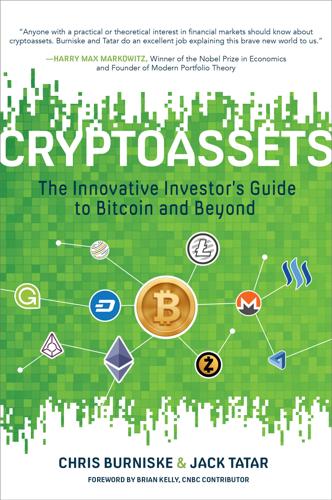
Cryptoassets: The Innovative Investor's Guide to Bitcoin and Beyond: The Innovative Investor's Guide to Bitcoin and Beyond
by
Chris Burniske
and
Jack Tatar
Published 19 Oct 2017
Every newly founded South American country defaulted on its debt, except for Brazil, in what has become known as “The First Latin American Debt Crisis.”8 Not only would this bubble hurt European investors, it would hurt South America for decades to come, arguably even to the present as the region has been marred by continued defaults. For example, Chile, Colombia, and Peru have spent 27.5 percent, 36.2 percent, and 40.2 percent of their sovereign lives in default or rescheduling, never quite able to escape the early precedent that was set.9 The Bitcoin Ponzi Myth Criticisms of bitcoin and cryptoassets being Ponzi schemes have been circulating since bitcoin first hit investors’ radar screens.10 However, this criticism is deeply misinformed, and the World Bank has joined us in this opinion. In a 2014 report it states: Contrary to a widely-held opinion, Bitcoin is not a deliberate Ponzi. And there is little to learn by treating it as such.
…
Edward Chancellor, Devil Take the Hindmost: A History of Financial Speculation (Farrar, Straus and Giroux, 1999). 2. http://www.thebubblebubble.com/mississippi-bubble/. 3. http://www.thebubblebubble.com/south-sea-bubble/. 4. Edward Chancellor, Devil Take the Hindmost. 5. Ibid. 6. Ibid. 7. Ibid. 8. Ibid. 9. Carmen M. Rinehart and Kenneth S. Rogoff, This Time Is Different (Princeton University Press, 2011). 10. https://www.washingtonpost.com/news/wonk/wp/2015/06/08/bitcoin-isnt-the-future-of-money-its-either-a-ponzi-scheme-or-a-pyramid-scheme/?utm_term=.39f7a8895637. 11. http://documents.worldbank.org/curated/en/660611468148791146/pdf/WPS6967.pdf. 12. https://cointelegraph.com/news/one-coin-much-scam-swedish-bitcoin-foundation-issues-warning-against-onecoin. 13. https://news.bitcoin.com/beware-definitive-onecoin-ponzi/. 14. https://www.fca.org.uk/news/news-stories/beware-trading-virtual-currencies-onecoin. 15. https://www.sec.gov/investor/alerts/ia_virtualcurrencies.pdf. 16.
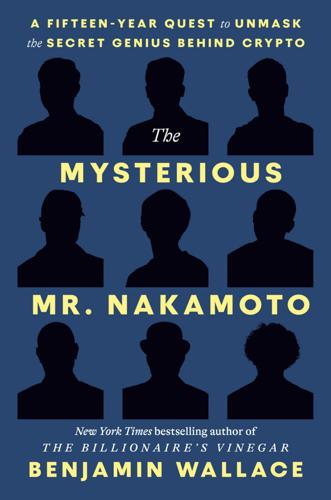
The Mysterious Mr. Nakamoto: A Fifteen-Year Quest to Unmask the Secret Genius Behind Crypto
by
Benjamin Wallace
Published 18 Mar 2025
Zooko Wilcox wrote that he, too, was surprised to be hearing this sentiment from Ben, and suggested that Ben hadn’t taken the time to properly understand Bitcoin before posting. Later, Ben elaborated on his critique of Bitcoin. He thought proof of work was an environmental travesty and Bitcoin a Ponzi scheme. He argued that a decentralized currency would always be impossible because any network that didn’t have at least 50 percent of all existing computing power could always be overwhelmed by a greater concentration of computers. Satoshi Nakamoto had warned about the danger of a so-called 51 percent attack, but Nakamoto believed Bitcoin’s incentives made it more attractive for such an attacker to mint coins than to devalue the currency.
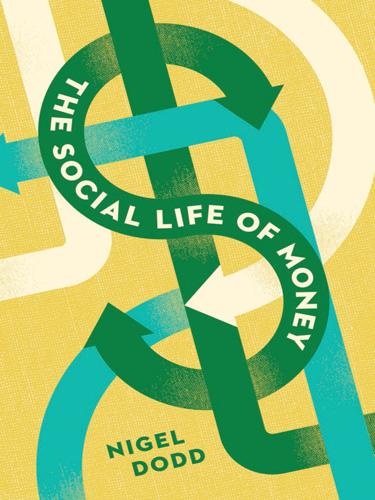
The Social Life of Money
by
Nigel Dodd
Published 14 May 2014
See Forbes’s “An illustrated history of Bitcoin crashes,” http://www.forbes.com/sites/timothylee/2013/04/11/an-illustrated-history-of-bitcoin-crashes/. 35 The total value of all Bitcoins in the world exceeded $1 billion for the first time in March 2013. 36 See Slate, “Fool’s Gold,” http://www.slate.com/articles/news_and_politics/view_from_chicago/2013/04/bitcoin_is_a_ponzi_scheme_the_internet_currency_will_collapse.html. 37 “Bitcoin Is No Great Mystery,” see http://socialdemocracy21stcentury.blogspot.ie/2013/04/bitcoin-is-no-great-mystery.html, accessed April 15, 2013. 38 Sociologically, on the other hand, the image we have of the “average” Bitcoin user is rather predictable.
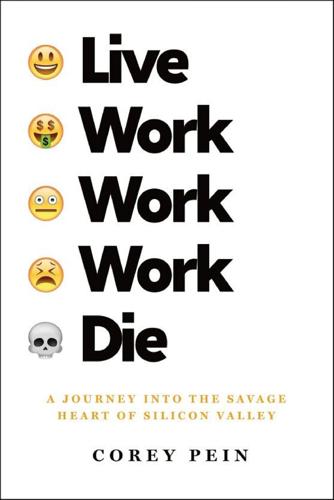
Live Work Work Work Die: A Journey Into the Savage Heart of Silicon Valley
by
Corey Pein
Published 23 Apr 2018
By 2013, when the goldbugs, money launderers, and Wall Street speculators joined the Bitcoin frenzy, Kenna had become a charter member of the “Bitcoin millionaires’ club,” and his distaste for “unethical” business practices had evolved. He now argued that the marketing of Ponzi schemes should be permitted so long as the terms were clearly stated. It was all in good fun, like a friendly game of poker. Of course, Bitcoin itself was a Ponzi scheme. As with so many other Bitcoin companies before it, Tradehill collapsed in a morass of litigation. Kenna was “pulling my hair out … not sleeping,” and once more left holding the bag. “I was, like, completely broke and I needed somewhere to live in San Francisco, which is horrible,” Kenna recalled in a video interview with a Bitcoin blogger.
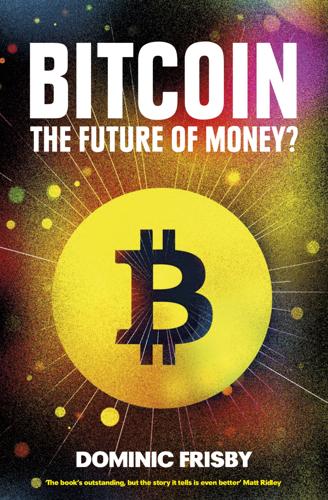
Bitcoin: The Future of Money?
by
Dominic Frisby
Published 1 Nov 2014
Over the next six months, the range was flat around $100. More organizations started accepting bitcoins. Venture capital began pouring into the sector, despite continuing criminal activity ranging from hacking to money laundering. One notorious organization – the Texas Bitcoin Savings and Trust – was accused of being a Ponzi scheme. In court, its founder Trendon Shavers tried to argue that bitcoins are not real money to sidestep misappropriation-of-funds charges, but the judge ruled that ‘Bitcoin is a currency or form of money.’ In August, Bitcoin was also ruled a unit of account by the German Federal Ministry of Finance.
…
He promoted his idea with huge under-statement – but the scheduled deflation of bitcoins (in other words that their value will likely increase) means there would be no shortage of bitcoin-holders to do the promoting for him. So we can add an understanding of psychology to his list of qualities. His knowledge of how people on the internet, in the open source world and in large institutions work allowed him to progress his creation. Finally, he has a certain honesty. Despite Bitcoin’s similarities to a pyramid or Ponzi scheme, he never pumped-and-dumped his creation. Tempting though it must have been, he seems to have kept most of the bitcoins he mined (more on this later). There are not many people like this. From mathematics to computer programming to economics and monetary history to politics to PR and psychology to cryptography to business acumen and vision to plain old written English – in all of these fields he excelled.
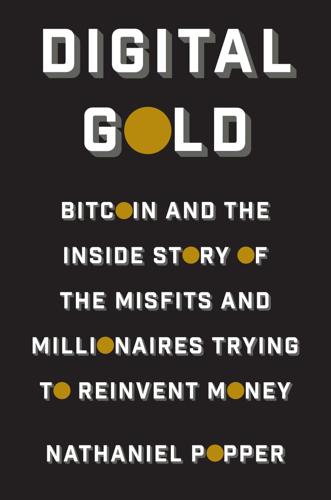
Digital Gold: Bitcoin and the Inside Story of the Misfits and Millionaires Trying to Reinvent Money
by
Nathaniel Popper
Published 18 May 2015
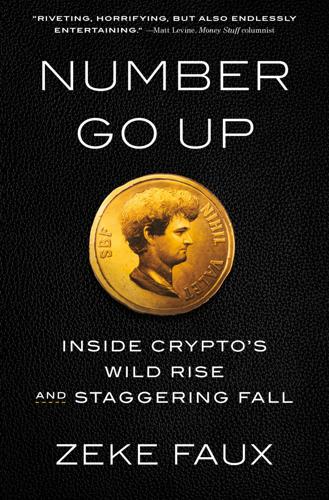
Number Go Up: Inside Crypto's Wild Rise and Staggering Fall
by
Zeke Faux
Published 11 Sep 2023
See also Bored Apes; Mutant Apes arrests for fraud and, 238 celebrity purchasers of, 141–142 costs of, 110 hacking of, 146 as intellectual property, 155 market for, 139, 142, 143–144 ownership of, explained, 142–143 process of buying, 147–149 RR/BAYC, 157 theft of, 153 Three Arrows’s ownership of, 166 North Korea hacking and, 12, 97, 127 stablecoins and, 170 Novogratz, Mike, 50, 162 Number go up mantra, 21, 22 O OHM, 110 O’Leary, Kevin, 132 Oliver, John, 162 O’Neal, Shaquille, 89, 142 OpenSea, 147, 149 Operation Bayonet, 104 Ortiz, David, 131 Oseary, Guy, 154 Oxb1, 110, 155 Oz, Yosef, 61, 62 P Paltrow, Gwyneth, 142 Paul, Logan, 201 Perpetual Action Group, 43 Perring, Fraser, 70 Perry, Katy, 129, 165 Philippines, 120–122, 123, 126–127 “Pho King Badd Bhech” (Morgan), 99 Phong Bui, 188, 189–190 Picozzi, Valentina, 205–206, 207, 239 Pierce, Brock acting career of, 32 appearance of, 27, 31 Bukele and, 201 as cryptocurrency promoter, 27 DEN and, 32, 33 EOS promoted by, 49 EverQuest and, 33 genesis of stablecoins and, 32, 36 home of, 29 IGE and, 34 MasterCoin investment of, 36 move to Puerto Rico by, 115–116 Tether and, 36, 38, 52 yacht Chakra and, 30–31 “pig butchering” Binance and, 213–214 described, 172–173 FTX and, 231 money-moving process, 180–181 organization to aid victims of, 175–176 Tether and, 175, 176–179, 185, 213–214 Vicky Ho scam, 173, 175 Pindling, Lynden, 77 Pixelmon, 143 Platinum Partners, 72 Poland, 62 pollution produced by Bitcoin, 20 Poloniex, 52 Ponzi schemes, 45, 162–163, 165, 166, 226, 238. See also Celsius Network; Mashinsky, Alex; Tether Pope, Alexander, 50 Potter, Phil banks and Tether, 52 Bitfinex’s movement of money and, 60 Devasini and purchase of Tether, 38 payment for Noble, 57 Realcoin and, 36 Protos, 74 Puerto Rico, 115–116 “pump-and-dump” schemes, 49–50, 237 Q QuadrigaCX, 48, 61 Quigan, Ryan, 126, 127 Quigan, Shiela, 126–127 R ransomware, 101 Ray, John, III, 223 “Razzlekhan.”
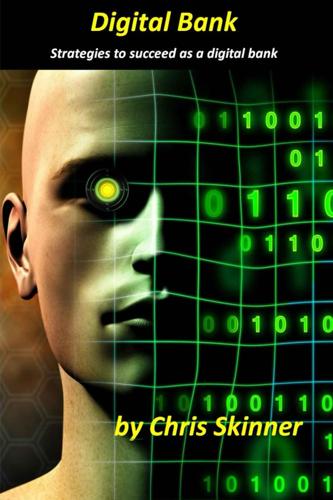
Digital Bank: Strategies for Launching or Becoming a Digital Bank
by
Chris Skinner
Published 27 Aug 2013
As Anthony Gallippi, CEO of Bitpay, said at a conference I chaired that : “Bitcoin is a new asset class where money can be stored in the cloud and accessed anywhere with any device for free”. Now I like that. That describes it succinctly and perfectly as any money I can store for free in the cloud, use with any device and transact easily at low or zero cost, makes sense to me. The future of Bitcoin Often people think Bitcoins are some sort of dodgy Ponzi scheme used for money laundering and drugs, but that’s just because they don’t understand what’s going on. You see Bitcoin is the Wikicoin for the Wikileaks world. It is disruptive because it has no central issuing authority or control, and that’s where governments have a big issue. It needs to be controlled and this is why some governments, particularly the US government, spread views that Bitcoins are all about subversive disruption.
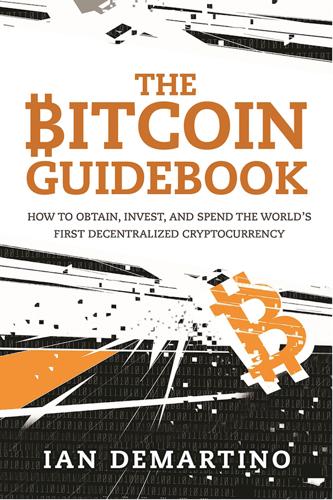
The Bitcoin Guidebook: How to Obtain, Invest, and Spend the World's First Decentralized Cryptocurrency
by
Ian Demartino
Published 2 Feb 2016
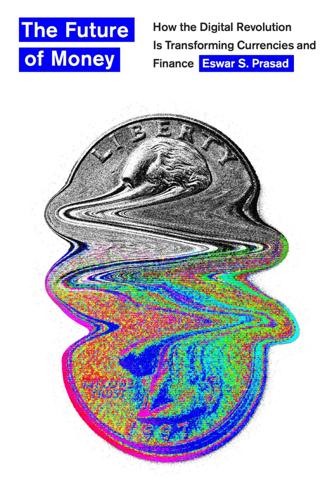
The Future of Money: How the Digital Revolution Is Transforming Currencies and Finance
by
Eswar S. Prasad
Published 27 Sep 2021
High and rising real estate valuations seemed to be based on the notion that all it took to make money from a house purchased at inflated prices was to find just one buyer—an even greater fool than oneself—willing to pay an even higher price. Carney’s speech came on the heels of another by Agustín Carstens, head of the Bank for International Settlements; he described Bitcoin as “a combination of a bubble, a Ponzi scheme and an environmental disaster.” Skeptics, including central bankers and academics, correctly note Bitcoin’s extremely volatile prices and the periodic price collapses it has experienced. Indeed, from an economist’s perspective, there is no logical reason Bitcoin should be priced beyond its value in providing a pseudonymous payment mechanism, let alone the sort of value it commands.
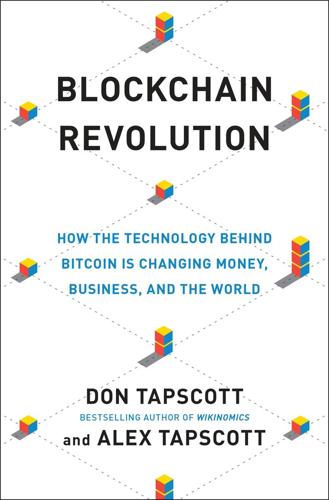
Blockchain Revolution: How the Technology Behind Bitcoin Is Changing Money, Business, and the World
by
Don Tapscott
and
Alex Tapscott
Published 9 May 2016